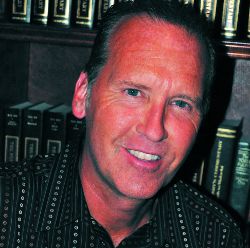 How an overly politicized culture may affect our view of leadership
How an overly politicized culture may affect our view of leadership
Would Moses have run for president? And if so, would anyone have voted for him? Instead of “choosing to run,” Moses would more likely have only served if convinced he was truly “chosen to lead” Israel. Even then, it would’ve been difficult. Unlike American politicians, instead of running for office, Moses would have been more likely to run away from it.
The most important consideration of Moses and the Oval Office for church leaders, however, is this: How does the roller-coaster world of U.S. presidential politics affect or infect our pure biblical view of leadership within the church? The fact remains, while our nation is embroiled in the search to elect a political leader to serve the nation, the church is still responsible to call upon godly ones to serve the church.
Consider how an overly politicized culture may affect our view of leadership:
“Campaigners” — This faulty mindset emerges whenever we see church roles as something we campaign for rather than something of which we’re called. Such an approach has no New Testament precedent. The escalated efforts and monies going into pushing one party’s agenda can create a view in our minds of the “leader as manipulator.” This undermines the role of the church in seriously acknowledging spiritual giftedness and calling.
“Pundits” — This view occurs when we focus on sharpening our criticisms of church leaders and their decisions more than on improving our collaborative and supportive skills. The 24/7 news talk show channels and the scathing adamant criticisms that abound can develop a view of the “leader as critic.” This counteracts the role of the church as a collaborative and authentic community.
“Partisans” — When we begin to view ourselves more as part of a particular spiritual “party” or hair-splitting theological group than as members of the body of Christ, we undermine the unity for which Christ prayed (John 17:22). This can develop a view of the leader as “the self-absorbed,” the antithesis of servant leadership.
Let’s face it. If Moses did run for office today, the media would probably devour him. Without the intervention of God, he would not survive a full week. Just think about it. Moses was ...
A murderer — Before he yielded himself to God’s hand, he tried to take his destiny into his own hands, killing an Egyptian and burying him in the sand. Most of us today would have said he had a record that disqualified him to lead.
A fugitive — When things got too hot to handle in Egypt, Moses made his way to the backside of the desert and developed a quiet and secluded life. Many would have pointed the finger at his inadequacy for leadership, saying that he shunned his responsibilities.
An inarticulate stutterer — When called by God to a leadership mission, Moses recoiled over thoughts of all the awkward stump speeches it would require. His critics would’ve said he wasn’t talented, articulate or charismatic enough. Sound familiar?
Nonetheless, with all of his shortcomings, Moses remains the preeminent model of leadership in the Old Testament. But his renown is not relegated there alone.
Moses is referenced more than 80 times in the New Testament and given honorable mention in Hebrews 11 as a leader who led by faith: “By faith Moses’ parents hid him for three months after he was born, because they saw he was no ordinary child, and they were not afraid of the king’s edict. By faith Moses, when he had grown up, refused to be known as the son of Pharaoh’s daughter. He chose to be mistreated along with the people of God rather than to enjoy the pleasures of sin for a short time (vv. 23-24, NIV, emphasis added).”
Now that’s the kind of leader we would vote for.
Robert Crosby is an author, speaker and team development specialist. He serves as professor of practical theology at Southeastern University and is a columnist at Patheos.com. Crosby writes for Christianity Today and several other publications. His new book, The Teaming Church: Ministry in the Age of Collaboration, is slated to release this fall.
Get Spirit-filled content delivered right to your inbox! Click here to subscribe to our newsletter.
Dr. Mark Rutland's
National Institute of Christian Leadership (NICL)
The NICL is one of the top leadership training programs in the U.S. taught by Dr. Mark Rutland. If you're the type of leader that likes to have total control over every aspect of your ministry and your future success, the NICL is right for you!
FREE NICL MINI-COURSE - Enroll for 3-hours of training from Dr. Rutland's full leadership course. Experience the NICL and decide if this training is right for you and your team.
Do you feel stuck? Do you feel like you’re not growing? Do you need help from an expert in leadership? There is no other leadership training like the NICL. Gain the leadership skills and confidence you need to lead your church, business or ministry. Get ready to accomplish all of your God-given dreams. CLICK HERE for NICL training dates and details.The NICL Online is an option for any leader with time or schedule constraints. It's also for leaders who want to expedite their training to receive advanced standing for Master Level credit hours. Work through Dr. Rutland's full training from the comfort of your home or ministry at your pace. Learn more about NICL Online. Learn more about NICL Online.


